
Polia is a comune (municipality) in the Province of Vibo Valentia in the Italian region of Calabria. It is located about 30 kilometres (19 mi) southwest of Catanzaro and about 20 kilometres (12 mi) northeast of Vibo Valentia. As of 31 December 2004, it had a population of 1,224 and an area of 31.8 square kilometres (12.3 sq mi).
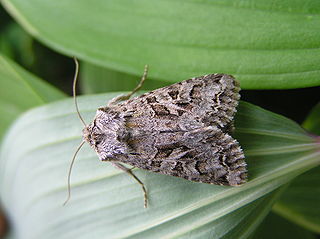
The Hadenini are a mid-sized tribe of moths in the Hadeninae subfamily. As numerous hadenine genera have not yet been assigned to a tribe, the genus list is preliminary.

Polia's shrew is a species of mammal in the family Soricidae. It is endemic to Democratic Republic of the Congo.

Teresa Polias is an Australian soccer player, who currently plays for Sydney FC in the Australian W-League.
Psilopleura is a genus of tiger moths in the family Erebidae. The genus was erected by Herbert Druce in 1898.

Polia is a genus of moths of the family Noctuidae described by Ochsenheimer in 1816.
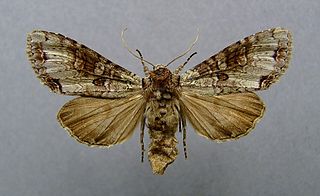
Polia hepatica, the silvery arches, is a moth of the family Noctuidae. The species was first described by Carl Alexander Clerck in 1759. It is found in temperate Europe and east across the Palearctic to Siberia and Korea. It is not present in northernmost Fennoscandia and the southern parts of the Iberian Peninsula, Italy and Greece. It is also absent from Japan.
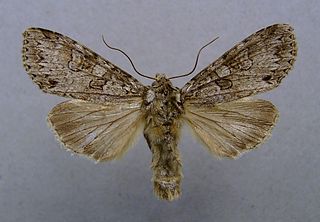
Polia nebulosa, the grey arches, is a moth of the family Noctuidae. The species was first described by Johann Siegfried Hufnagel in 1766. It is found in temperate Europe and Asia up to eastern Asia and Japan. It is not present in northernmost Fennoscandia and the southern parts of the Iberian Peninsula, Italy and Greece. In the Alps it is found at heights up to 1,600 meters.
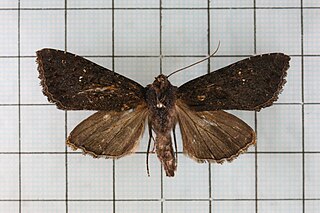
Polia mortua is a species of moth of the family Noctuidae. It is found in the Russian Far East, Korea, Japan and Taiwan.
Psilopleura polia is a moth in the subfamily Arctiinae. It was described by Herbert Druce in 1898. It is found from southern Texas to Central America and Vanuatu.
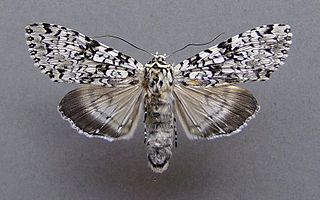
Polia goliath is a moth of the family Noctuidae first described by Charles Oberthür in 1880. It is found in eastern Asia including Japan and Taiwan.
Egnasia polia is a moth of the family Noctuidae first described by George Hampson in 1891. It is found in India and Sri Lanka. Wingspan is 28 mm. Body fuscous grey in color. Forewing with the fulvous outer half of costal area. A grey patch and some white specks found on costa before apex. Cilia fulvous, with a black line through them. Hindwing with black spot at end of cell.
Nagadeba polia is a moth of the family Noctuidae first described by George Hampson in 1891. It is found in Sri Lanka.
Polia rogenhoferi is a species of cutworm or dart moth in the family Noctuidae. It is found in North America.

Polia nimbosa, the stormy arches, is a species of cutworm or dart moth in the family Noctuidae. It is found in North America.

Polia purpurissata, the purple arches, is a species of cutworm or dart moth in the family Noctuidae. It is found in North America.
Polia richardsoni is a species of cutworm or dart moth in the family Noctuidae first described by Curtis in 1834. It is found in North America.
Polia imbrifera, the cloudy arches, is a species of cutworm or dart moth in the family Noctuidae. It is found in North America.
Polia nugatis is a species of cutworm or dart moth in the family Noctuidae. It is found in North America.

Polia piniae, the piney moth, is a species of cutworm or dart moth in the family Noctuidae. It is found in North America.
This page is based on this
Wikipedia article Text is available under the
CC BY-SA 4.0 license; additional terms may apply.
Images, videos and audio are available under their respective licenses.











